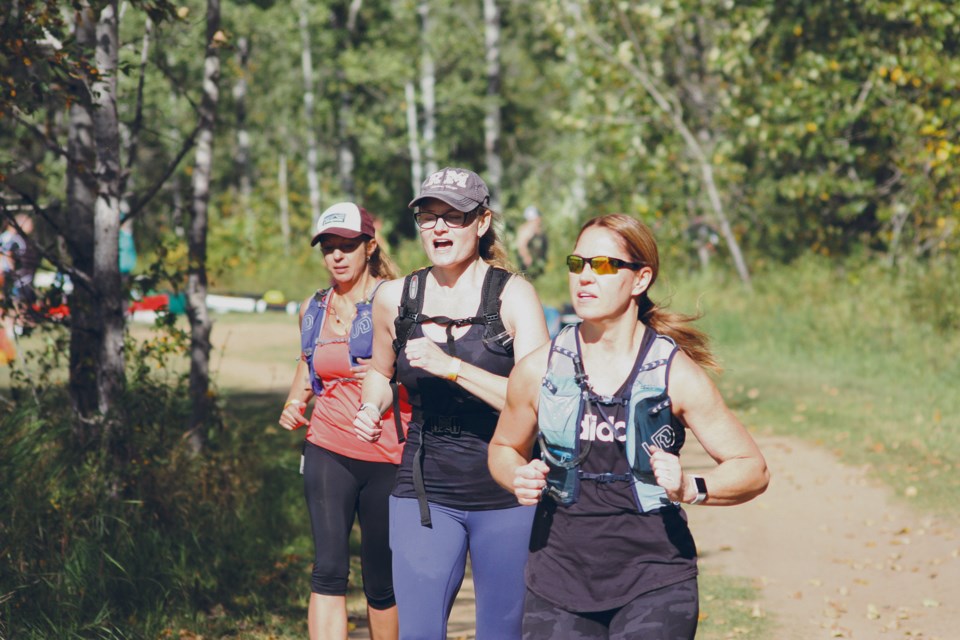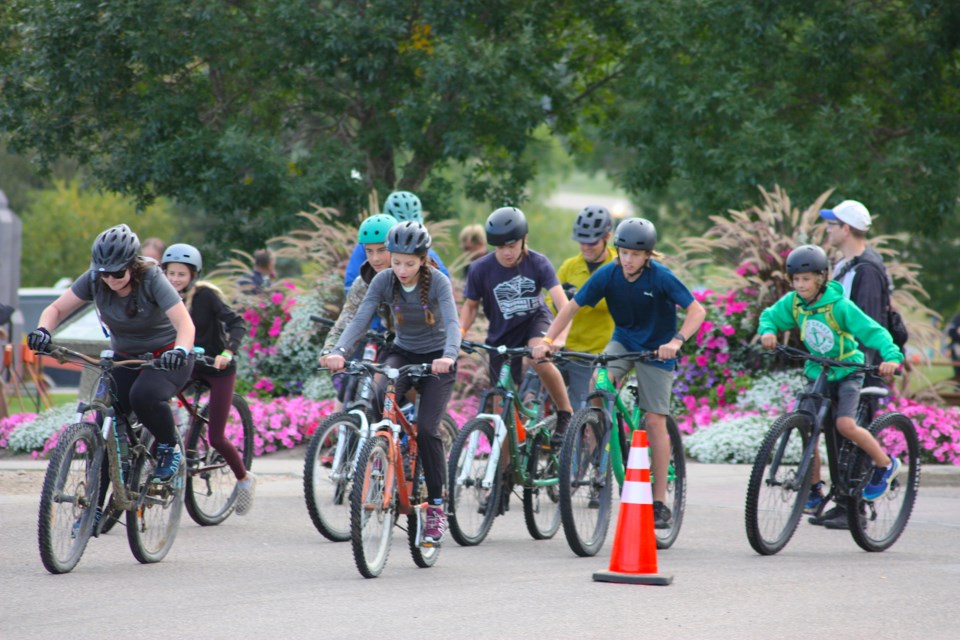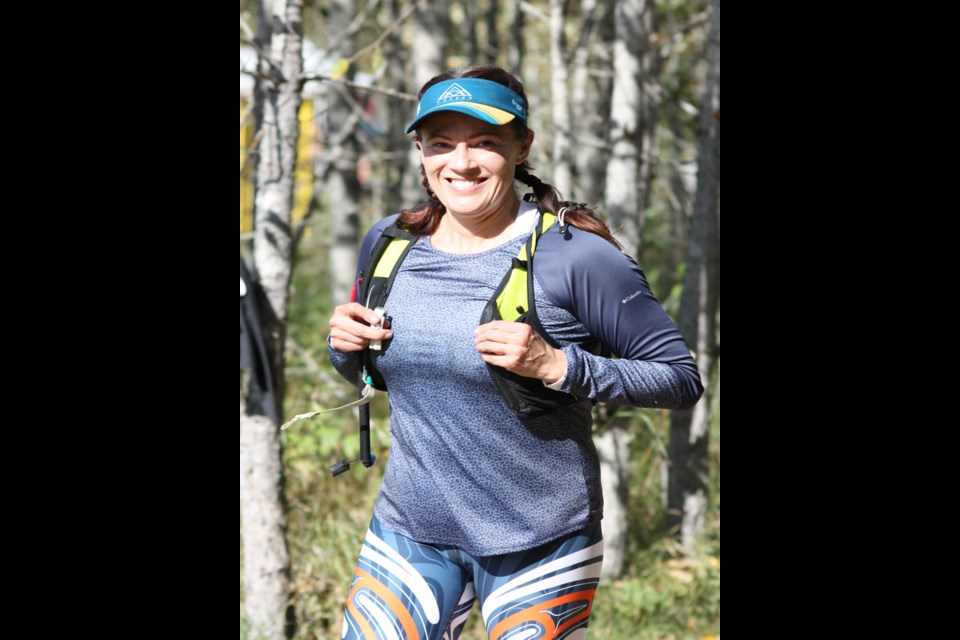ATHABASCA – Kapâwinihk is the word for Athabasca Landing in Cree, and much like the original settlement that eventually grew into the community we know today, the Kapâwinihk Wilderness Triathlon is showing potential to grow into something truly special on a number of fronts in the coming years.
The second-ever triathlon event took place Sept. 11, starting at the Athabasca Riverfront, after taking a year off in 2020 because of the COVID pandemic, but grew in size by about 25 per cent since the inaugural race in 2019, up to 98 registered participants, plus 25 others who took part in the run portion.
And 70 of those 98 bikers, paddlers and runners came from outside the Athabasca region, said co-organizer Janene Kargus, from as far away as Taber and Airdrie and Fort McMurray and represented an age range from 13 to 63.
“We grew by 25 per cent, and what we're sort of really patting ourselves and our participants on the back about is out of those, 70 of them were from out of town, and a huge portion of them had never been to Athabasca before,” said Kargus, who, along with Parallel 54 partner Heather Boucher organized the first race in 2019 as a way of promoting the health and wellbeing of the community while showcasing the community at the same time.
“Me and Heather, we're just two friends that traveled around to go to all these events, and we hate leaving home because we’re happy at home on the weekends and even when you have a couple days off and you want to be in your stomping grounds. And so, we were like, ‘Let's make this happen.’”
They did, and visitors have not been disappointed what they’ve experienced.
The race started at 9 a.m. sharp Saturday morning with bikers lining up to take their marks. Within a few hundred metres the Muskeg Creek Trail system, in all its early-autumn splendour, would play host to the first third of the race. Athletes completed either one lap, or two, on the trails from Landing Trail Intermediate School, around to Athabasca University, and back to LTIS, depending on which event they chose to complete—standard competitors completed 20 km on the bike, eight on the river and 11 on foot, whereas sprint competitors biked and ran half those distances.
A traditional triathlon usually includes a swim, but a wilderness triathlon allows competitors to choose between a paddleboard, kayak or canoe for the water portion.
Within three-quarters of an hour, the fastest bikers were already on the water with their vehicles of choice, on their way north, under the Athabasca Bridge, to River Meadows RV Park, disembarking another hour after that to hit the trails there to complete the final portion.
And while some were there to beat their personal bests, time didn’t really matter to others who were just along for the scenery and the experience, and really, the camaraderie of community.
“You can only compete against yourself and there were people there who were going for their best times, it's good for them, and we were at that finish line for them, but then there were people there who are just like, ‘Let's just enjoy an amazing Saturday’ and that's what they came for. And that's what we gave them,” said Kargus.
In the longer Female Solo Standard event, Athabasca’s Makayla Sheppard put up a time of 2:41:38.9, with St. Albert’s Kim Watt and Spruce Grove’s Kate Neigel following. The Male Solo Standard event saw Lac La Biche’s Justin Menard cross the finish line with a time of 2:34:32.6, followed two minutes later by Edmonton’s Dennis Colburn, and two minutes after that by Boyle’s Kurt Ehman.
In the Male Solo Sprint, Radway’s Avery Macyk completed the race in 2:22:20.3, followed by Edmonton’s Rick Harcourt and Ian Meier. In the Female Solo Sprint, Sheri McCallister, from Rocky View County, finished with a time of 2:26.47.7, while Glenda Gray and Stephine Martin, both from Athabasca, finished in second and third, while Boyle’s Hannah Ehman, 13, finished in a very respectable fourth.
“She crossed that finish line with the biggest smile ever,” said Kargus.
The whole event is a community affair, says Kargus, who points out just about everything they need, they purchase locally, or at least in nearby rural communities, and in turn the sponsors and volunteers come out in spades to support the event. While there were many, Kargus gave special thanks to the Town of Athabasca, whom she called “spectacular,” and the Athabasca Lions Club for their volunteer work.
Planning for the 2022 race is already underway, she says, and hopes even more will take part, and bring a friend to see what this land and community has to offer, pointing out the race’s namesake, Kapâwinihk, once again.
“We always like to make sure you know we named our race Kapâwinihk, as part of reconciliation ... and we feel it's important to show that we fully respect and are honoured to be on this land, sharing the land with everybody.”






